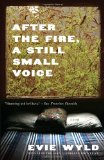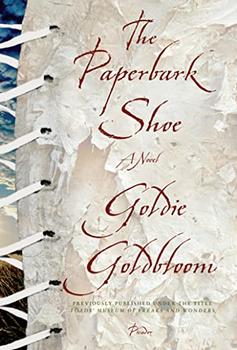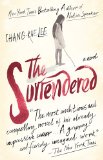Summary | Excerpt | Reading Guide | Reviews | Beyond the book | Read-Alikes | Genres & Themes | Author Bio

Set in the haunting landscape of eastern Australia, this is a stunningly accomplished debut novel about the inescapable past: the ineffable ties of family, the wars fought by fathers and sons, and what goes unsaid.
After the departure of the woman he loves, Frank drives out to a shack by the ocean that he had last visited as a teenager. There, among the sugarcane and sand dunes, he struggles to rebuild his life.
Forty years earlier, Leon is growing up in Sydney, turning out treacle tarts at his parents' bakery and flirting with one of the local girls. But when he's drafted to serve in Vietnam, he finds himself suddenly confronting the same experiences that haunt his war-veteran father.
As these two stories weave around each other - each narrated in a voice as tender as it is fierce - we learn what binds Frank and Leon together, and what may end up keeping them apart.
Evie Wyld’s impressive first novel employs the harsh and often dangerous Australian environment as a setting for the loneliness and devastation that can ruin a man’s life after he returns from war... When I finished the story I was left with scenes of jungles, death, loss and sorrow, but also vivid vignettes of young men discovering their sexuality, forming connections with friends, and finding peace of mind through creativity...continued
Full Review
 (516 words)
(516 words)
(Reviewed by Judy Krueger).
When war broke out in Korea in June 1950, the United Nations Security Council asked all of its members to assist in repelling the North Korean invasion into South Korea. North Korea was under the influence of the Soviet Union and later in the war Communist China entered the fray as well. Fifteen nations sent contingents to defend South Korea, with the United States being the largest.
Australia committed a squadron of Air Force personnel, equipment, and a battalion from the Royal Australian Regiment. The country's security was felt to be at risk from Communist aggression and the Prime Minister was eager to show its full support of the United Nations. More particularly he wanted to secure a formal alliance with the United States, who were...

If you liked After the Fire, a Still Small Voice, try these:

by Goldie Goldbloom
Published 2011
Set in 1940s Australia, The Paperbark Shoe is a remarkable novel about the far-reaching repercussions of war, the subtle violence of displacement, and what it means to live as a captive - in enemy country, and in one's own skin.

by Chang-rae Lee
Published 2011
A stunning story about how love and war inalterably change the lives of those they touch, The Surrendered is elegant, suspenseful, and unforgettable: a profound meditation on the nature of heroism and sacrifice, the power of love, and the possibilities for mercy and salvation.
To be ignorant of what occurred before you were born is to remain always a child
Click Here to find out who said this, as well as discovering other famous literary quotes!